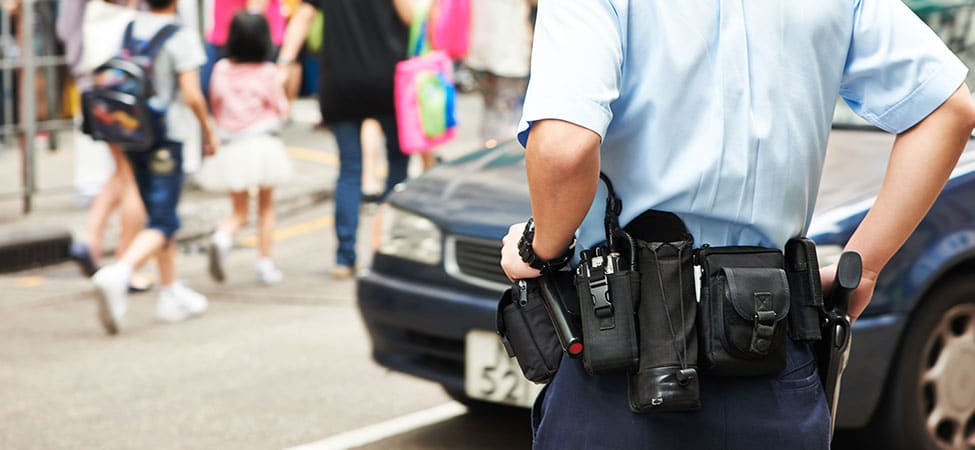Home | Know Your Rights: Can the Police Stop Me on the Street?
Legal Blog
Know Your Rights: Can the Police Stop Me on the Street?
24 September 2020 | Criminal Defense, Legal Blog,

Since the tragic deaths of George Floyd in Minneapolis, Jacob Blake in Kenosha, WI, and countless others there’s been a lot of attention on the police and what exactly they can and cannot do.
The police have a lot of authority when investigating a crime, but this authority is not absolute. If you feel the Indianapolis police violated your rights or you or a loved one are facing charges after an encounter with law enforcement in Marion County, reach out to Hessler Law at (317) 886-8800 for a free and confidential consultation.
Sean Hessler is experienced and dedicated Indianapolis criminal defense lawyer. Let him review the situation, explain your options, and help you deal with whatever issue you are dealing with.
Police always have the legal authority to stop you on the street and ask questions. Without this power, their ability to enforce laws is severely diminished. But without suspecting criminal activity, the police can basically only initiate a voluntary encounter with you.
For example, the police can stop and question a bystander to a car accident or crime. They can even ask to see your ID. They might ask to search your bag. Under these circumstances, you are under no obligation to answer the police’s questions or consent to a search. You may end this encounter at any time you wish.
During a voluntary police encounter, you have the power. But the encounter stops being voluntary, and the power shifts to the police officer when you are a suspect. For instance, if the police have reasonable suspicion that you committed a crime, they can detain you to determine whether there is probable cause to arrest you.
This usually means asking you questions that you can, and should, refuse to answer. You always have the right to consult an attorney before answering police questions.
The police may also frisk you for weapons if they have reason to believe you are armed and/or dangerous. If the police find weapons or contraband, or if you say something that implicates you to a crime, the police will have the probable cause they need to arrest you.
It’s not always easy to determine if the police are initiating a voluntary encounter or detaining you as a potential suspect. If you’re not sure, simply ask the officer if you are free to go.
If the encounter is voluntary, the officer must let you go. Sometimes, the police try to draw out voluntary encounters by not answering this question. Calmly and politely repeat the question until the officer either lets you go or formally detains you.
According to Indiana Law, the police can ask you for the following if they suspect you committed a crime:
The law explicitly states that the police may not access your phone during such an encounter. But if you fail to provide the above information, they may arrest you. Subsequently, you may be charged with a class C misdemeanor punishable by 60 days in jail and a $500 fine.
You probably know that the police cannot come into your home unless they have a warrant, your consent, or there’s an emergency situation such as a fleeing suspect or the destruction of evidence. So, why can the police stop and detain you for how long in the street on the mere suspicion that you have committed a crime?
The limits of police authority are set by the Fourth Amendment to the United States Constitution. This prohibits unreasonable searches and seizures of property and people. It means that the police can detain and search you on the street in a way that is reasonable under the Fourth Amendment.
It’s been the Supreme Court’s task to determine what is and is not reasonable police conduct. The court’s primary method of setting limits to police power is weighing the government’s interest in public safety with the individual’s’ right to privacy.
Where people have a heightened expectation of privacy – such as in their homes – the state cannot easily conduct a search or seizure. But where people have a reduced expectation of privacy – like when walking down a public street- their constitutional protections are also reduced.
At Hessler Law, we built our reputation on delivering positive case outcomes through effective advocacy and client-centered practice. We take protecting your rights seriously, and if you have been charged with a crime in Indianapolis after being stopped on the street, we are ready to help.
By working with an experienced and driven Indianapolis criminal defense lawyer early, you may be able to have your charges dismissed if there’s evidence of police misconduct. Let us review the details of what happened and guide your next steps.
Call us today at (317) 886-8800 to receive a free and confidential consultation.